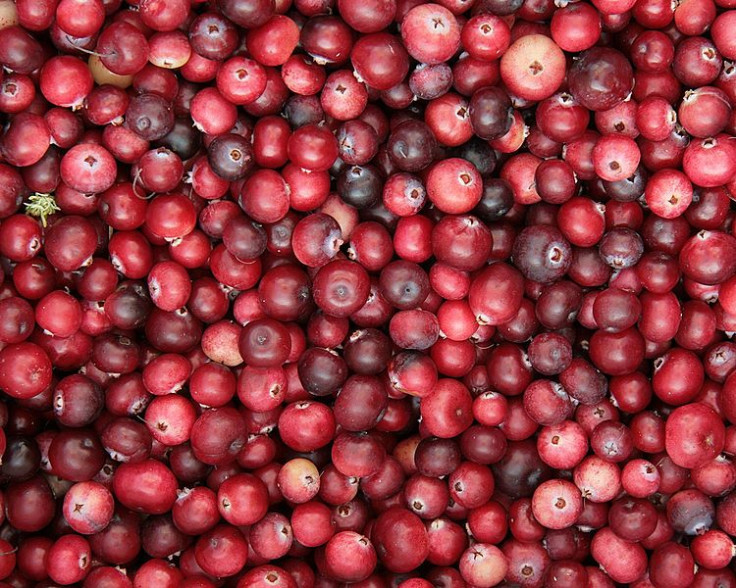Cranberries Weaken UTI Bacteria's Ability To Be Infectious

How often have you heard that cranberry juice can help you with your urinary tract infection (UTI)? Although its use for such conditions has been anecdotally referenced over the years, scientists have never fully understood what makes cranberries, in particular, so helpful. Recent studies have found that phytochemicals known as proanthocyanidins (PACs) prevent bacteria from sticking to the walls of the urinary tract. Now, a new study has delved deeper into the biological mechanisms that make this possible.
Researchers in McGill University's Department of Chemical Engineering wanted to see what the biological mechanisms were that gave cranberries protective properties against urinary tract infection, as well as others. To test this, they looked at the reaction that Proteus mirabilis — a bacterium commonly associated with complicated UTIs — had when exposed to cranberry powder on an agar plate. They found that the powder not only blocked the bacterium from swimming in the agar, but as more powder was added, the bacterium lost ability to produce urease, an enzyme that can determine how infectious the bacteria is.
Previous studies from the same researchers have shown that alternative forms of cranberries can block the movement of bacteria involved in UTIs. In one study, they found that the genes responsible for the growth of the flagellar filament — used for swimming — in certain types of E. coli bacteria could be shut down with cranberry PACs.
Another study found that cranberry-enriched silicone substrates impaired the spread of Proteus mirabilis. They think these substrates can be used to stop the spread of bacteria within catheters, and other implantable medical devices that often cause UTIs.
UTI bacterium try to evade the body's immune response by swimming through the urinary tract, and end up spreading throughout.
"While the effects of cranberry in living organisms remain subject to further study, our findings highlight the role that cranberry consumption might play in the prevention of chronic infections," Professor Nathalie Tufenkji, lead author of the study, said in a press release. "More than 150 million cases of UTI are reported globally each year, and antibiotic treatment remains the standard approach for managing these infections. The current rise of bacterial resistance to antibiotics underscores the importance of developing another approach."
Source:
McCall J, Hidalgo G, Tufenkji N, et al. Cranberry impairs selected behaviors essential for virulence inProteus mirabilisHI4320. Canadian Journal of Microbiology. 2013.



























